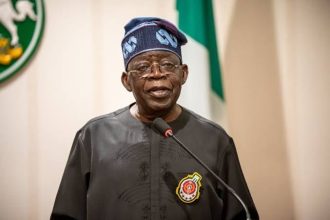China has announced plans to establish electric vehicle factories in Nigeria as part of a broader push to strengthen industrial collaboration and deepen investment in the country’s solid minerals sector.
The Chinese Ambassador to Nigeria, Yu Dunhai, made the disclosure during a courtesy visit to the Minister of Solid Minerals Development, Dele Alake, over the weekend.
He highlighted Nigeria’s strategic importance in China’s foreign policy and reaffirmed Beijing’s interest in supporting President Bola Tinubu’s economic diversification agenda.
“Nigeria is a great country blessed with tremendous natural resources. Chinese companies are already deeply involved in Nigeria’s mining sector, from exploration to processing.
“We aim to deepen this collaboration, especially in line with President Tinubu’s eight priority areas, notably economic diversification through solid minerals,” Ambassador Dunhai stated.
He referenced the recent bilateral talks between Presidents Tinubu and Xi Jinping during the Nigerian leader’s state visit to China, noting that the two leaders agreed to elevate relations to a comprehensive strategic partnership, paving the way for expanded cooperation.
The ambassador emphasized China’s stance on ethical business practices, stating that the embassy consistently urges Chinese firms in Nigeria to obey local laws, engage in corporate social responsibility, and adhere to environmental and safety standards.
“We have zero tolerance for illegal mining. The Chinese government is ready to cooperate with Nigerian authorities to bring any culprits to justice,” he said.
In his response, Minister Alake praised the positive contributions of many Chinese firms to Nigeria’s mining and industrial sectors but expressed concern over a few errant operators damaging the country’s image. He cited a recent viral video involving a Chinese national allegedly bribing security personnel.
“We’ve taken action against illegal operators, including some Chinese nationals. While isolated, such incidents undermine the good work of many compliant Chinese firms. We need your cooperation in ensuring that such culprits are brought to justice,” Alake said.
The minister also highlighted the government’s efforts to crack down on illegal mining, including the deployment of Mining Marshals, which he said has improved compliance and signaled a shift toward more responsible mining practices.
Alake reiterated Nigeria’s commitment to attracting serious investors who are willing to engage in local value addition, rather than exporting raw minerals.
“For years, our minerals have been exported raw to fuel foreign industrialisation. That must change. We now prioritise local processing to drive Nigeria’s development.
“For instance, with the abundance of lithium, we want to see local manufacturing of electric vehicles and batteries,” he added.
He urged the Chinese envoy to encourage investors to adopt a full-cycle investment model—from mineral extraction to manufacturing—in Nigeria. He noted that this approach would not only harness Nigeria’s market potential but also support the transition away from fossil fuels.
Ambassador Dunhai, in his closing remarks, welcomed Nigeria’s push for local value addition and revealed that plans are already underway to set up EV factories and other manufacturing operations in the country. He affirmed that this aligns with President Xi Jinping’s broader vision to support Africa’s industrialisation.











